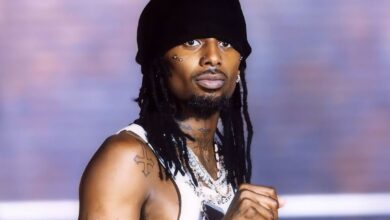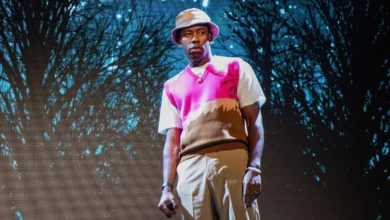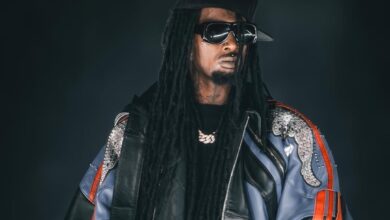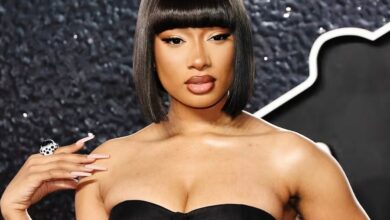Kendrick Lamar’s Most Controversial Moments
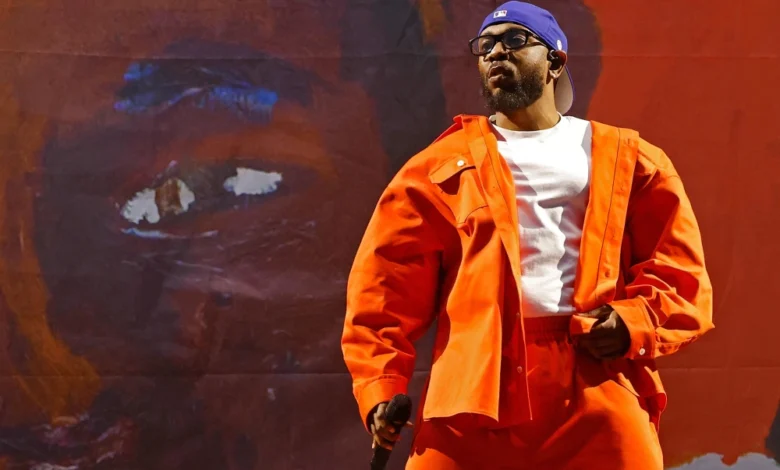
Kendrick Lamar is widely regarded as one of the most influential and thought-provoking artists of his generation. Known for his powerful lyrics and social commentary, Lamar has often used his platform to address issues of race, identity, and systemic inequality. While his artistry has been celebrated, he has also been at the center of several controversies throughout his career. These moments have sparked debate, criticism, and admiration alike. Here’s a look at some of Kendrick Lamar’s most controversial moments.
1. “Control” Verse: A Shot Heard Around the Hip-Hop World (2013)
Kendrick’s verse on Big Sean’s song Control became one of the most talked-about moments in hip-hop. In it, Lamar famously declared himself “the King of New York” and namedropped other rappers, challenging them to step up their game. The line, “I’m usually homeboys with the same ns I’m rhyming with, but this is hip-hop and them ns should know what time it is,” ignited a firestorm of responses, including diss tracks from several prominent rappers. The verse was controversial not only for its directness but for its boldness in questioning the entire landscape of rap competition and camaraderie.
Though it wasn’t an actual diss track, Lamar’s Control verse was seen as a call to arms for the rap game, forcing other artists to reflect on their own artistry and authenticity. The line also sparked discussions about regional pride, especially regarding Lamar’s “King of New York” line, which many saw as a challenge to New York rappers.
2. “Alright” and the Black Lives Matter Movement (2015)
Kendrick Lamar’s 2015 album To Pimp a Butterfly featured the anthem “Alright,” which became an unofficial protest song during the Black Lives Matter movement. The song’s chorus, “We gon’ be alright,” resonated with many people fighting against racial injustice. However, some critics felt Lamar’s focus on systemic oppression and police brutality was too politically charged, and his activism was seen by some as too radical for mainstream success.
Despite the backlash from certain quarters, the song’s message of hope and resilience in the face of adversity cemented Lamar’s place as one of the most politically engaged artists of his generation. His performances, such as the 2016 BET Awards performance, further highlighted his commitment to speaking out against racial injustice, even in the face of controversy.
3. The “DNA.” Music Video (2017)
In the music video for DAMN.’s lead single “DNA.,” Kendrick Lamar presented a thought-provoking narrative that explores themes of race, identity, and survival. The video begins with an intense interrogation scene in which Lamar is seemingly accused of crimes because of his race. As the video unfolds, Lamar delves into the complexity of his identity as a Black man in America. The imagery, paired with his hard-hitting lyrics, sparked debates over his portrayal of race relations and the use of controversial visuals to convey his message.
Some viewers saw the video as an empowering statement about Black identity and resilience, while others took issue with the aggressive tone and confrontational visuals. The video’s unapologetic approach to race and power dynamics stirred controversy, particularly among viewers who felt that it was too raw or polarizing for mainstream audiences.
4. “The Heart Part 4” and the Dis (2017)
In 2017, Kendrick Lamar released the track “The Heart Part 4,” which featured a cryptic verse many interpreted as a response to fellow rapper Big Sean. In the song, Lamar made references to rappers who were “weak” and not living up to their potential. While the verse didn’t directly name names, fans quickly speculated that it was aimed at Big Sean, especially after the two had previously collaborated on a track. The cryptic nature of the verse led to a wave of speculation, which ultimately led to tensions in the hip-hop community.
Although Lamar did not engage in an outright beef with Big Sean, the song fueled discussions about the competitive nature of rap and Kendrick’s place in the hierarchy of hip-hop. It also sparked debates over whether artists should engage in public feuds or rise above them, especially when both artists have expressed respect for each other in the past.
5. The 2018 Grammy Awards (2018)
Kendrick Lamar’s win at the 2018 Grammy Awards was met with significant controversy. While his album DAMN. was widely regarded as one of the best albums of the year, Lamar’s victory over artists like Jay-Z and Childish Gambino for Album of the Year raised eyebrows. Many felt that the Grammy Awards were overlooking Lamar’s cultural significance, particularly in the wake of his music’s political impact. Some critics also felt that Lamar’s success was a result of the Grammys attempting to make up for previous oversights regarding Black artists.
The most controversial moment of that night was Lamar’s performance, which featured a medley of songs from DAMN. and incorporated powerful political imagery. While many praised the performance for its creativity and relevance, others felt that it was a direct challenge to the predominantly white and conservative audience of the Grammy Awards. Kendrick Lamar’s 2018 Grammy experience only heightened his reputation as an artist unafraid to challenge institutions that he felt were flawed.
6. The “BET Cypher” (2015)
During the 2015 BET Hip-Hop Awards, Kendrick Lamar delivered a powerful freestyle in the annual BET Cypher that was brimming with social commentary. In his verse, he addressed the pressures faced by young Black men in America and emphasized the need for unity and self-improvement. While the verse was generally well-received, some criticized Lamar for his intense focus on race and his unapologetic critique of systemic inequality.
Many saw the cypher as a declaration of Lamar’s commitment to using hip-hop as a platform for political activism, but it also left some viewers uncomfortable, particularly those who wanted hip-hop to remain less political and more about personal success or street narratives. The cypher reaffirmed Lamar’s status as an artist who was willing to take risks and make bold statements through his music.
Kendrick Lamar’s career has been marked by a willingness to take risks and address uncomfortable truths. While his controversial moments have often sparked backlash or criticism, they’ve also cemented his reputation as an artist who isn’t afraid to challenge the status quo. His ability to blend artistry with activism has made him a polarizing figure in the music world. Yet, at the core of his controversies lies a commitment to authenticity, truth, and the exploration of complex social issues that resonate with listeners on a global scale.

